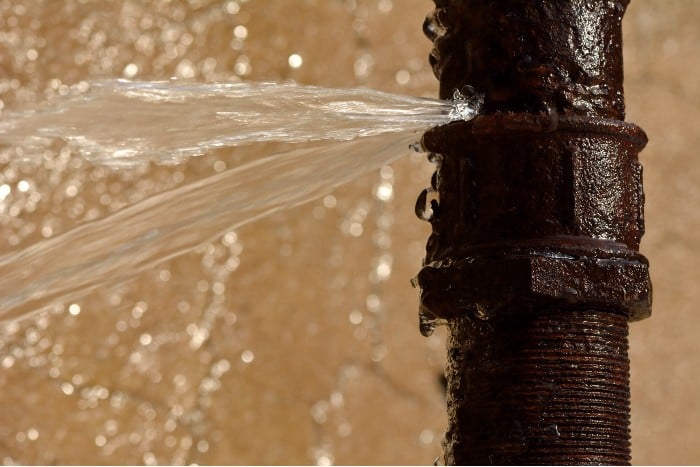Identifying the Main Causes for Water Leaks in Your Home
Identifying the Main Causes for Water Leaks in Your Home
Blog Article
They are making a few good pointers on the subject of Most Common Causes of Leaky Pipes as a whole in this article down the page.

Leaks not only trigger waste of water but can also create unneeded damage to your home and also advertise unwanted organic growth. Water leakages might go undetected since most of the pipework in our house is concealed. By looking and also comprehending for day-to-day situations that trigger leakages, you can shield your residence from future leaks and unnecessary damage. Today, we will certainly look at six leakage triggers that may be creating your pipelines to leak.
Immediate temperature level modifications.
Severe temperature modifications in our pipelines can create them to broaden and also get unexpectedly. This growth as well as contraction may cause fractures in the pipelines, specifically if the temperature level are below freezing. If you kept an eye on just how your plumbing works, it would be best. The presence of the previously mentioned situations often suggests a high danger.
Rusty water systems
As time passes by, your plumbing system ages and also rust such as rust might start gnawing the pipes. This might be the source of discoloration or bending on your water pipes. This asks for an inspection with your plumber instantly. If our plumbing system is old, consider replacing the pipelines because they go to a higher danger of corrosion than the newer versions.
Faulty Pipeline Joints
The factor at which your pipelines attach is regularly the weakest web link in the waterline. Pipeline joints can deteriorate over time, resulting in water leaks. The bulk of pipe joints are not easily noticeable. If you have noisy pipelines that make ticking or banging noises, especially when the warm water is switched on, your pipe joints are most likely under a lot of pressure. It is recommended to have your plumber evaluate your system yearly.
Trespassing origins
Most water leaks start outside your house instead of inside it. If you notice an unexpected decrease in water stress, say in your tap, require time to go out as well as examine your lawn. You could notice wet patches or sinkholes in your backyard, and that may suggest that tree roots are getting into water lines triggering water to permeate out. You can have your plumber look for intrusion, especially if you have trees or shrubs near your property.
Poor Water Connectors
At times, a leakage can be caused by loosened pipes as well as pipes that supply your home appliances. In instance of a water connections leak, you might notice water running directly from the supply line or puddles around your home appliances.
Obstructed Drains
Obstructed drains pipes might be bothersome and also inconveniencing, but they can often end up creating an overflow bring about rupture pipelines. Keep removing any materials that might decrease your drains that can obstruct them to avoid such troubles.
All the above are sources of leakages but not all water leakages result from plumbing leaks; some leaks may originate from roof covering leaks. All leakages must be fixed instantly to prevent water damages.
Leakages not just create waste of water but can additionally trigger unneeded damage to your house as well as advertise unwanted organic development. By understanding as well as looking for daily situations that cause leaks, you can shield your home from future leakages as well as unnecessary damage. Today, we will certainly look at six leakage causes that may be creating your pipes to drip.
At times, a leakage can be created by loosened hoses and also pipes that supply your devices. In situation of a water links leak, you may see water running directly from the supply line or puddles around your devices.
How To Check For Water Leak In Your Home
How To Check for Leaks
The average household's leaks can account for nearly 10,000 gallons of water wasted every year and ten percent of homes have leaks that waste 90 gallons or more per day. Common types of leaks found in the home are worn toilet flappers, dripping faucets, and other leaking valves. These types of leaks are often easy to fix, requiring only a few tools and hardware that can pay for themselves in water savings. Fixing easily corrected household water leaks can save homeowners about 10 percent on their water bills.
To check for leaks in your home, you first need to determine whether you're wasting water and then identify the source of the leak. Here are some tips for finding leaks:
Take a look at your water usage during a colder month, such as January or February. If a family of four exceeds 12,000 gallons per month, there are serious leaks.
Check your water meter before and after a two-hour period when no water is being used. If the meter changes at all, you probably have a leak.
Identify toilet leaks by placing a drop of food coloring in the toilet tank. If any color shows up in the bowl after 10 minutes, you have a leak. (Be sure to flush immediately after the experiment to avoid staining the tank.)
Examine faucet gaskets and pipe fittings for any water on the outside of the pipe to check for surface leaks.
Undetected water leaks can happen without the home or business owner even realizing. If you suspect a water leak, but not able to find the source. It is time to contact a professional water leak detection service, The Leak Doctor.
How To Find a Water Leak In Your Home
https://www.leakdoctor.com/blog/How-To-Check-For-Water-Leak-In-Your-Home_AE197.html

I was guided to that editorial about How to detect water leaks in your home from a friend on our other blog. Do you know somebody else who is involved in the subject? Be sure promote it. I truly appreciate reading our article about How to Find Water Leaks.
Clog issue? Reach out! Report this page